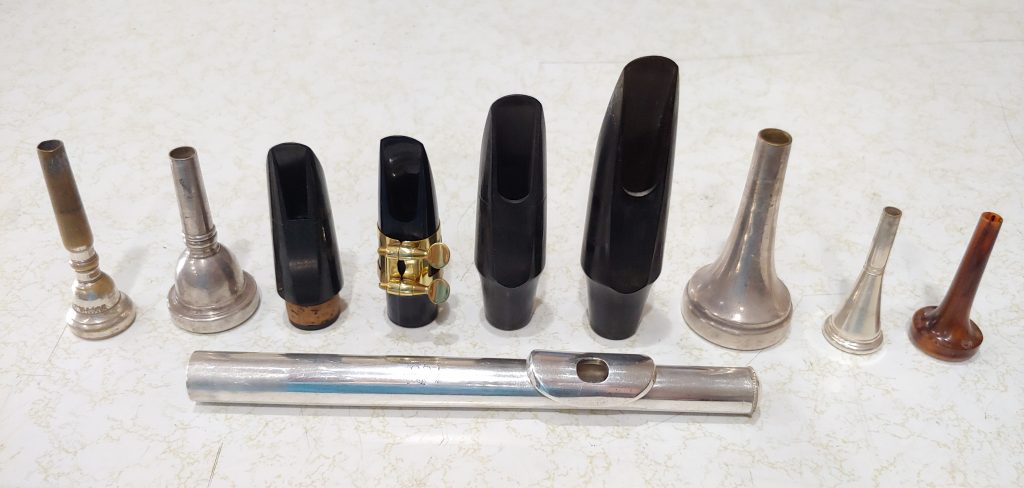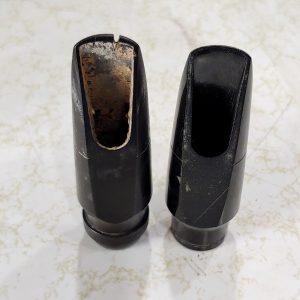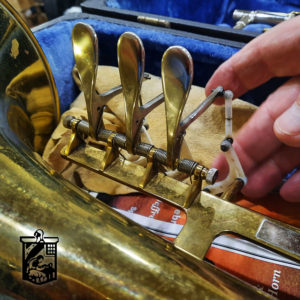The current situation with the spread of COVID 19 has brought to the forefront of conversation, personal hygiene and different methods which can minimize the spread of diseases. Washing hands, avoiding social contact, and cleaning frequently touched surfaces are all ways to help prevent the spread of this disease.
Those of us who work with musical instruments are keenly aware of the possibility of spreading germs through the sharing of musical instruments and lack of proper steps to clean mouthpieces and instruments. In many school situations, instruments are used by multiple students. Every day in our processing of repairs, our repair shop staff put instruments and mouthpieces through cleaning and sanitizing processes.
Sterilization vs. Disinfection
Total instrument sterility is nearly impossible, once a sterile object has been handled or exposed to air, it is no longer sterile. However, it can remain disinfected (elimination/reduction of most microorganisms) until used.
Most viruses cannot live on hard surfaces for a prolonged period of time. Some die simply with exposure to air. However, certain viruses and bacteria are quite hardy. Because of this musicians must be concerned with instrument hygiene. Users of school owned and rented musical equipment may be more susceptible to infections from instruments that are not cleaned and maintained properly.
If the cleaning process is thorough, musical instruments can be disinfected. It is vital that musical instruments are professionally maintained and sanitized on a yearly basis and if the player gets ill.
Instrument Hygiene
When renting or using a school-owned musical instrument, each user must understand that regular cleaning of these musical instruments is required in order to practice proper hygiene.






